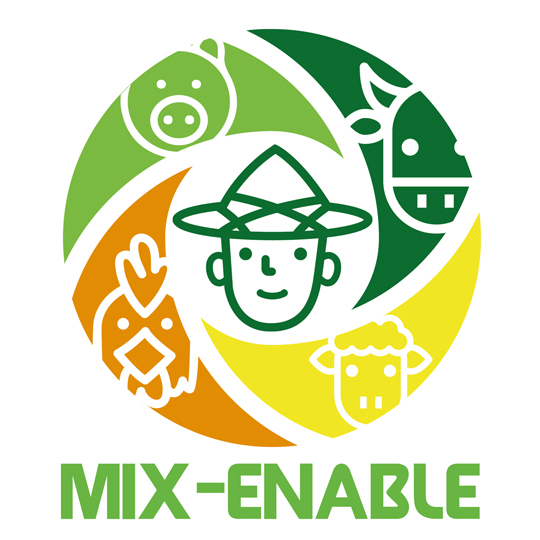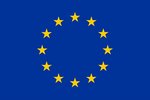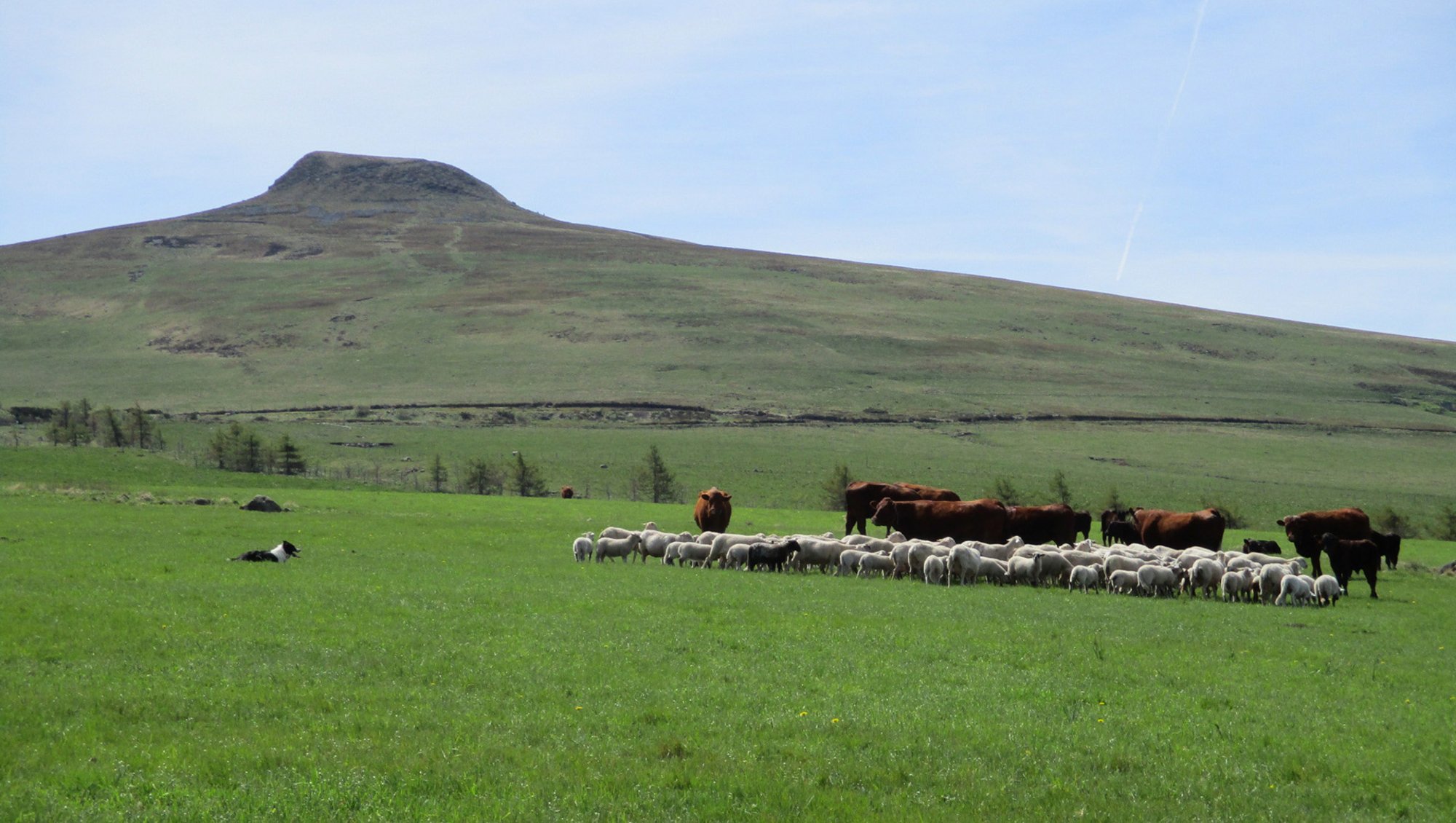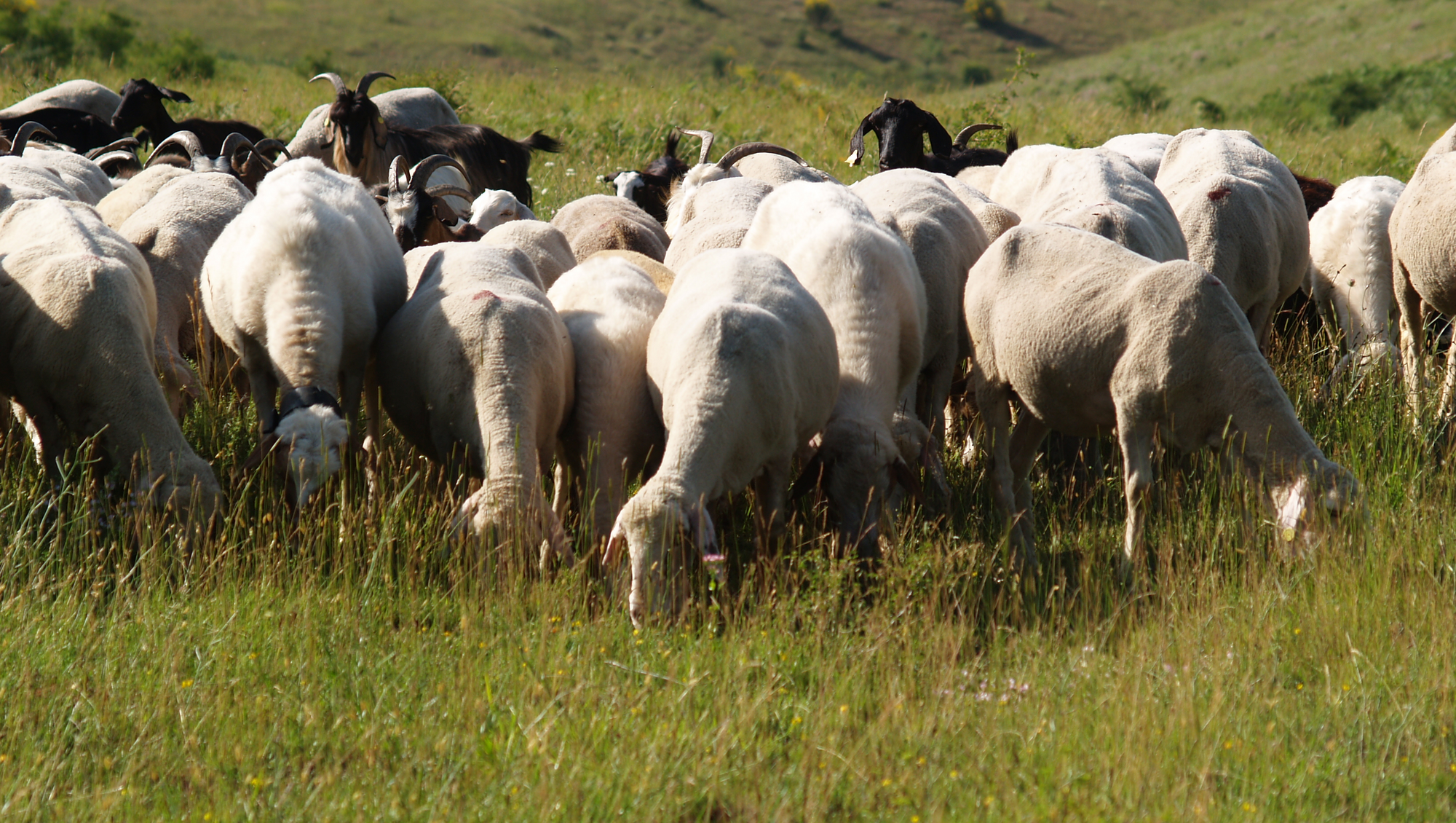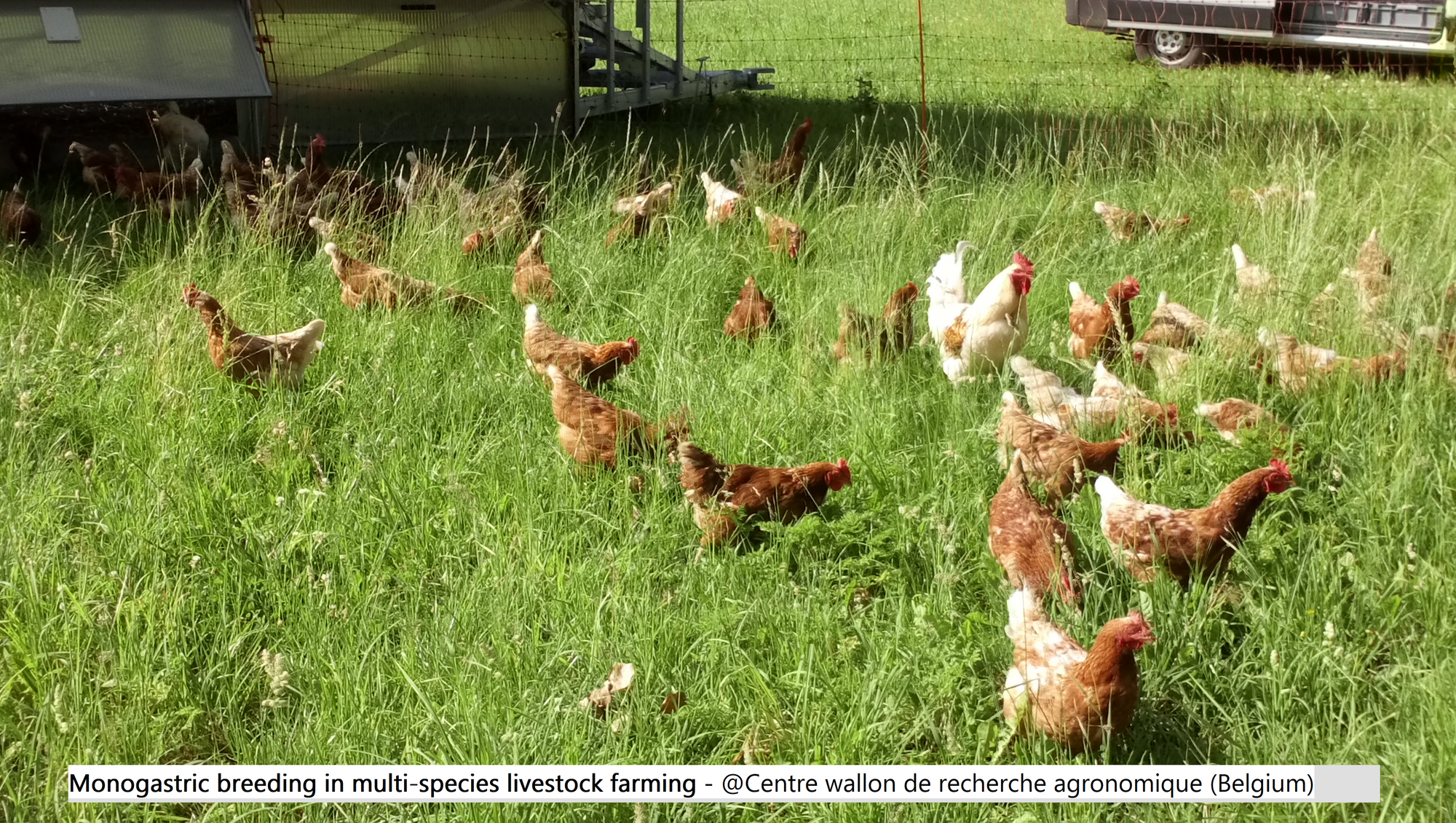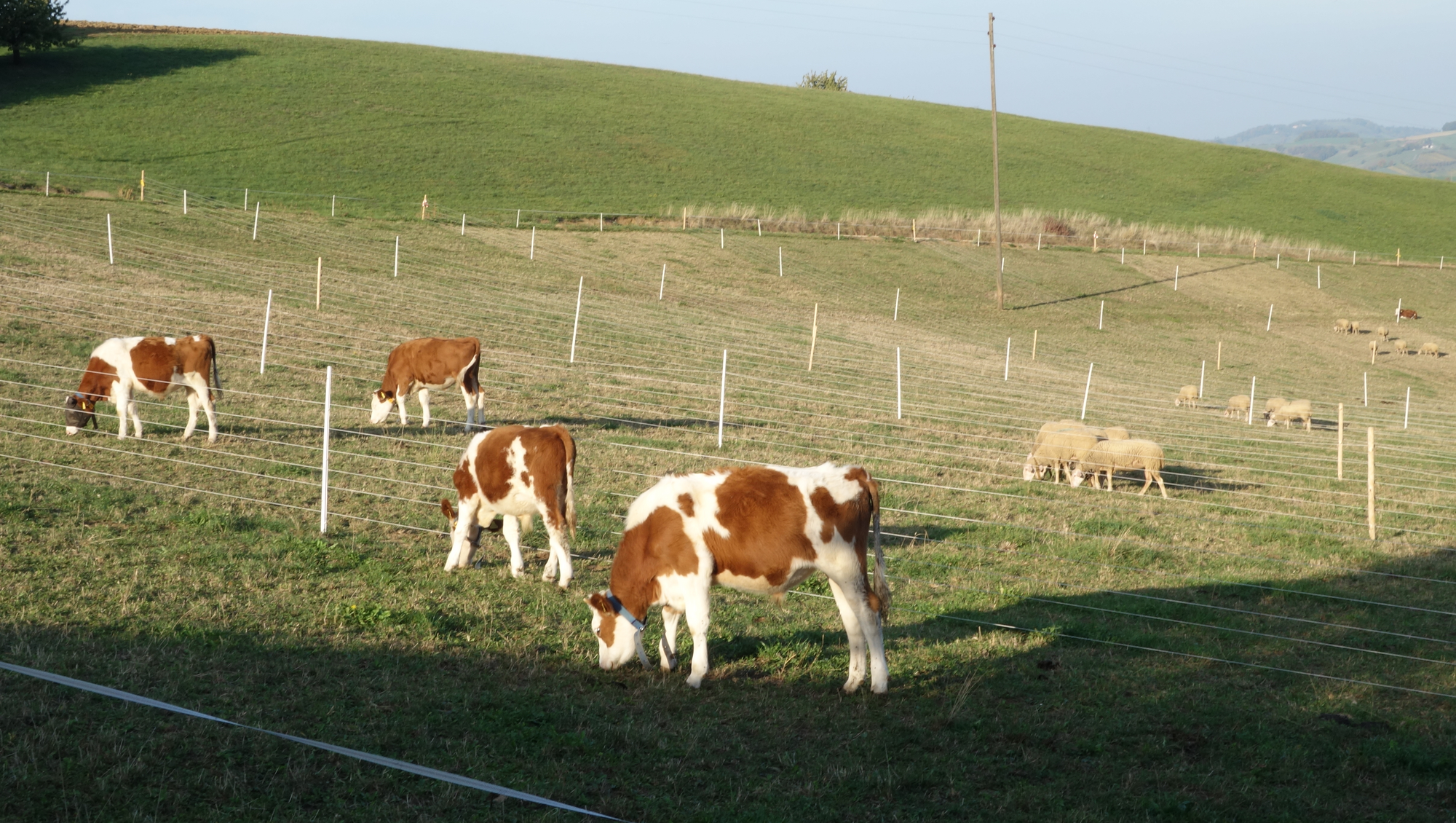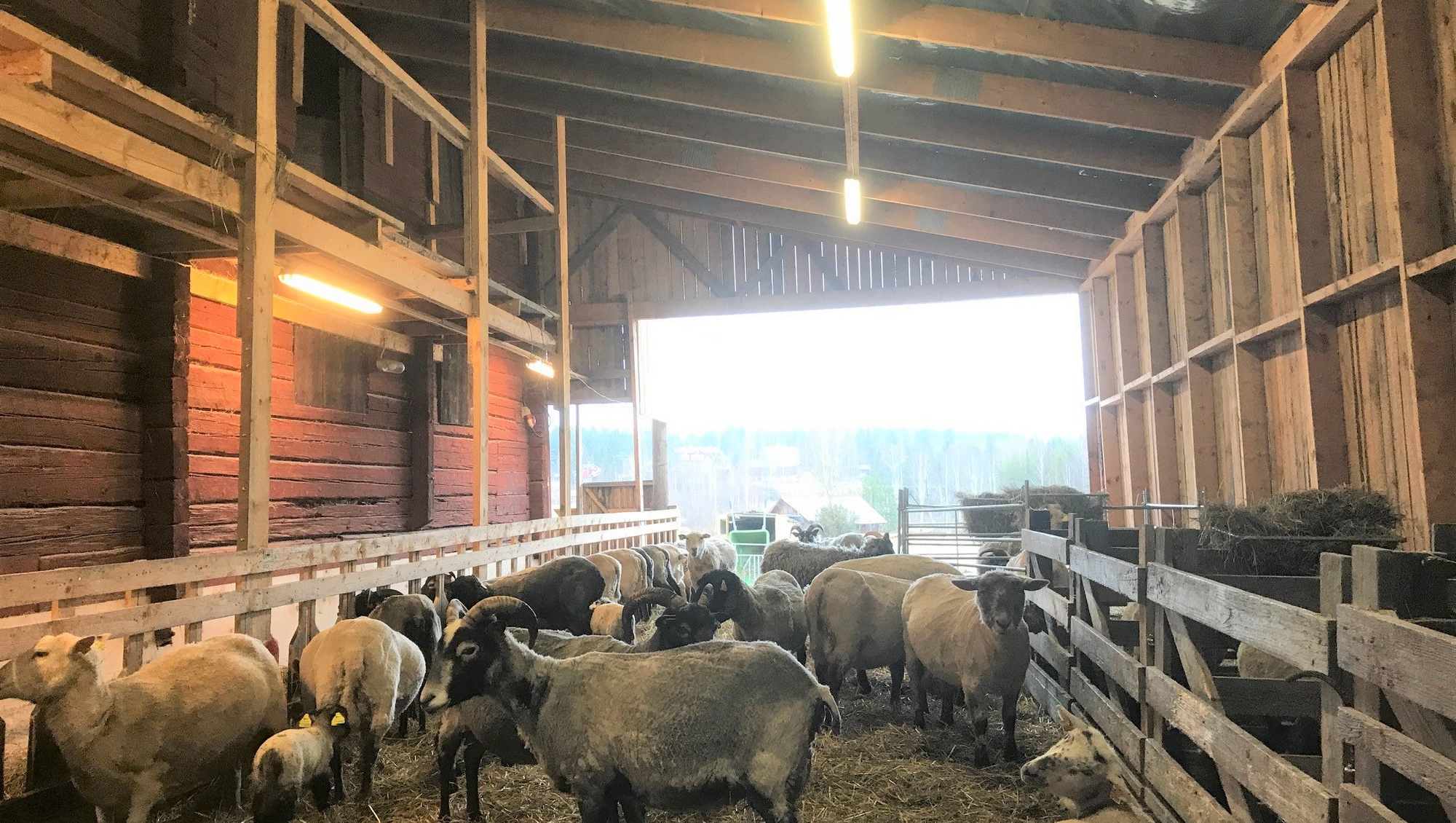Mix-Enable
Strategies for sustainable and robust organic mixed livestock farming
Introduction
Diversified farming systems are brought forward by scientists as an answer to many problems of sustainability and robustness related to modern industrial agriculture (air, soil and water pollution, biodiversity loss, etc.),. However, at the farm scale, the proof of concept seems rather limited. More attention should be paid to the conditions for enhanced sustainability and robustness, especially on how interactions between enterprises within the farm are managed.
The project will explore the conditions of sustainability and robustness of organic mixed livestock farms in Europe, especially the influence of integration between farm components on the aforementioned factors. Then, we will co-design with farmers more integrated, sustainable and robust organic mixed livestock farms or pathways from specialized towards organic mixed livestock farms.
Background
Integrating two or more animal species with crop production or agroforestry on a farm potentially provides various benefits, including more efficient pasture use and parasite management. However, most organic livestock farms are specialized and the few organic mixed livestock farms tend to display limited integration between farm components (crops, pastures and animals), i.e. limited interactions over space and time between these components. This limited integration may reduce the potential benefits of having more than one animal species.
Main project activities
- Survey 20 farms per country to assess the level of integration
- Propose an indicator system for integrated assessment of organic mixed livestock farms
- Characterize the conditions for the sustainability and robustness of organic mixed livestock farms in Europe
- Conduct farm-level experiments comparing specialized and mixed livestock production, for the comparison of specific aspects of animal husbandry (e.g. pasture use or animal health).
- Integrate obtained knowledge into models that can simulate organic mixed livestock farm performances during climatic and economic variability
- Together with farmers, co-design more integrated, sustainable and robust organic mixed livestock farms or pathways from specialized towards organic mixed livestock farms.
Benefits and results
Expected long-term societal benefits
In an organic agriculture context, given the restrictions on the use of agricultural inputs and the cost of organic inputs, seeking for integration within farms should be a priority to improve economic, ecologic and social performances.
Implementation and plans to reach target groups
A participatory approach will be implemented through several tasks e.g. co-design workshops to identify innovative forms of organic mixed livestock farms and dissemination actions e.g. farmer field days.
